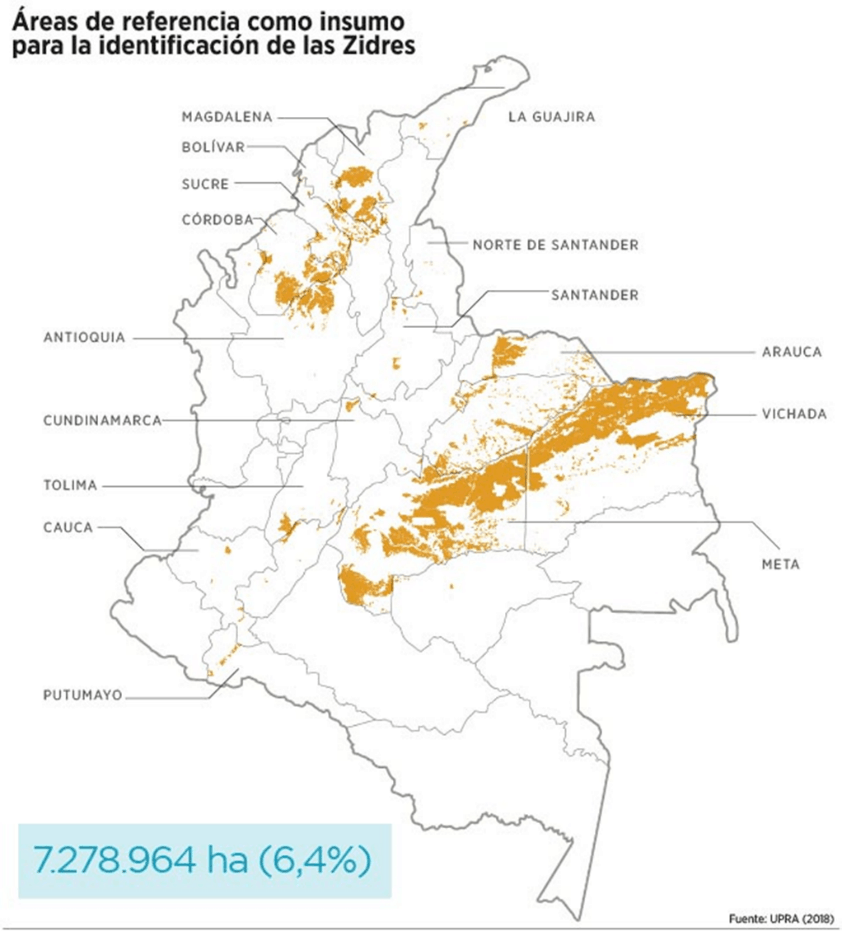The Areas of Interest for Rural, Economic and Social Development (Zonas de Interés de Desarrollo Rural, Económico y Social – ZIDRES) were created by Law 1776 on 29 January 2016 to promote competitive economic development in rural farming areas in Colombia; there are over seven million hectares of land identified for ZIDRES projects.
ZIDRES are large areas of rural land that will be given over to agribusinesses. They are designated as ‘public interest’ projects to be undertaken by national and multinational companies, individuals or associations. Smaller farmers already farming on this land will have to become associates of the agro-industry project or obliged to sell their land to the project (with a few exemptions).

The Colombian Government says that the ZIDRES projects will be developed in areas where: there are high poverty indicators, low population density, a long way from urban centres, costly to cultivate with little infrastructure. Maps have been publicised indicating where these projects are likely to be: in the Orinoquía region, Córdoba, Antioquia, Bolívar, Sucre and Magdalena.
The Government introduced the idea of ZIDRES suggesting that they were “vacant areas” of land – not owned by anyone. However, some of the areas designated as ZIDRES in Vichada have been the ancestral home of Indigenous tribes that reside in the Orinoquia.
One of the other areas of concern, especially for peasant farmers, is the accumulation of baldios, by those who were not legally entitled to them (referred to as ‘irregular accumulation’). During the conflict, land was accumulated in an “irregular manner” by national and international companies at the expense of the rights of the poor rural farmers. The Comptroller General has so far identified 14 cases. It appears that this irregular accumulation could be legalised under ZIDRES, as a productive project (basically plantations such as palm, rubber, pineapple etc.). This is because the first paragraph of Article 12 of the Land Law Bill (Ley de Tierras) allows what it calls ‘imperfect situations’ to be rectified in order to provide the company with legal security in areas declared as ZIDRES.
The bill has been criticised by Colombian NGOs who say that it will exacerbate the concentration of land, enable legalisation of land appropriated through irregular means; allocate baldíos to large scale projects. Such provisions run counter to the Rural Reform Chapter of the Peace Accord and could further deepen the existing inequality and exclusion in rural areas, which has been a root cause of the violence.
